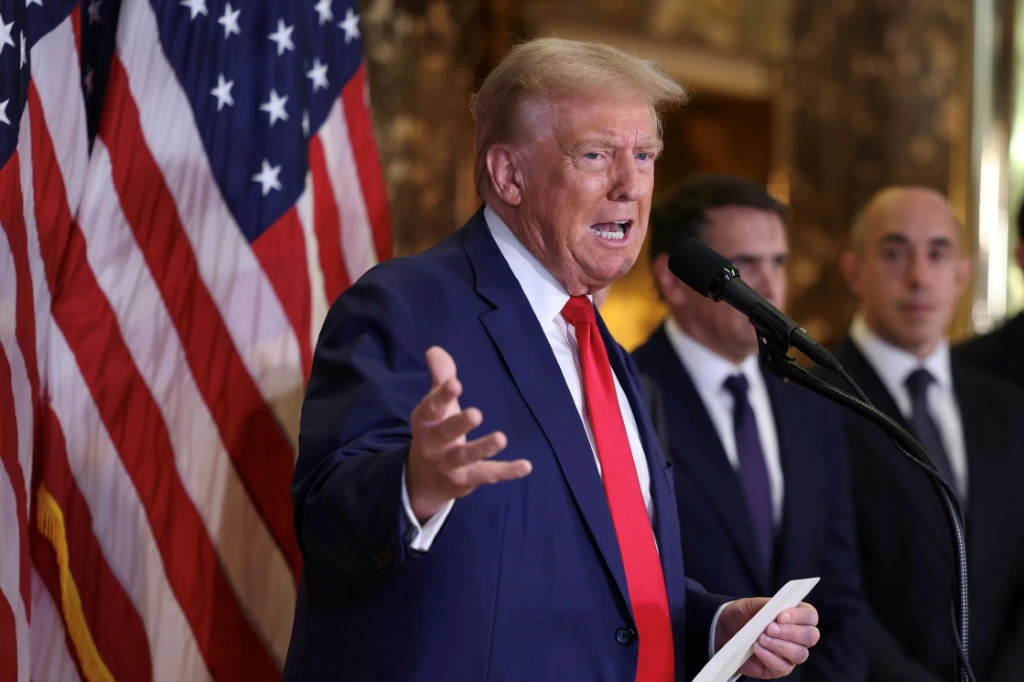As former President Donald Trump continues to make headlines with his historic criminal trials, one big question is floating around: Will the public get to watch his sentencing on live TV? With so many eyes on the case, many Americans are curious whether cameras will be allowed in the courtroom when the moment of sentencing finally arrives.
The short answer? It’s complicated—and the decision may depend on the court, the judge, and the specific laws in place.
Let’s break down what we know so far about the possibility of Trump’s sentencing being televised, what the rules say, and why this matters to so many people.
Why Is Trump Facing Sentencing?

Donald Trump has been involved in several criminal and civil cases, but the biggest headlines have focused on the criminal trial related to alleged hush money payments made during his 2016 presidential campaign. This case, being handled in New York, is the first time a former U.S. president has faced criminal charges.
The trial is currently ongoing, and if Trump is convicted, sentencing would follow. Sentencing is when the judge decides the punishment—whether it be probation, fines, or jail time. It’s a key moment in any criminal case.
And because this is a case involving a former president—and current presidential candidate—it has attracted massive public interest.
Are Cameras Allowed in Courtrooms?
Whether Trump’s sentencing will be televised depends heavily on where the trial takes place and the rules of that court system.
In the United States, courtrooms follow different rules depending on the level of the court and the state. Some courts allow cameras; others do not.
Here’s a quick breakdown:
- Federal Courts: Cameras are usually not allowed. Federal law bars live broadcasts of criminal trials. That includes sentencing hearings.
- State Courts: Some state courts do allow cameras, but it’s up to the judge. New York, where Trump’s hush money trial is taking place, generally allows limited media coverage, but only with the judge’s approval.
So if Trump’s trial ends in a conviction in New York, the decision about whether sentencing will be televised could be up to the judge overseeing the case—Judge Juan Merchan.
What Has the Judge Said About Cameras?
Judge Juan Merchan, who is handling the New York case, has so far taken a careful approach. He allowed still photos to be taken at the very beginning of the trial, but no live video.
The judge also denied media requests to stream the trial live, saying it would disrupt court proceedings. That suggests he may be cautious when it comes to allowing a televised sentencing.
At the same time, public interest in the case is sky-high, and there will likely be new media requests if sentencing happens. The pressure on the court to allow cameras could grow.
What Happens During a Sentencing?

A sentencing hearing can be dramatic, especially in a high-profile case. Here’s what usually happens:
- Arguments from Both Sides: Prosecutors will argue for a specific punishment, while defense lawyers will ask for leniency.
- Statements from the Defendant: The person being sentenced (in this case, Trump) can choose to speak, say sorry, or defend themselves.
- Statements from Victims (If Any): In some cases, victims or others affected by the crime may speak.
- The Judge’s Decision: Finally, the judge announces the sentence.
A televised sentencing could show these moments to the public in real-time, something that would be unprecedented for a former president.
Why Do People Want the Sentencing Televised?
There are several reasons why people are calling for Trump’s sentencing to be on TV:
- Transparency: People want to see justice being carried out openly.
- Public Trust: A televised hearing could help Americans feel the system is fair.
- Historical Moment: This would be a huge moment in U.S. history—many believe the public deserves to witness it.
Televised trials and hearings, like those involving O.J. Simpson or Johnny Depp, have drawn massive audiences. But Trump’s case is even more politically charged, which adds to the demand.
What Are the Risks of Broadcasting It?
While some argue for transparency, others worry that televising Trump’s sentencing could cause problems:
- Security Concerns: Trump still has a loyal fanbase. A televised sentencing could stir up protests or worse.
- Political Tensions: Broadcasting such a moment could increase political divides across the country.
- Impact on the Legal System: Some judges and legal experts say cameras might influence behavior in court or turn serious moments into media spectacles.
This is why courts tend to be careful about allowing cameras, especially in criminal cases.
Could Trump Use a Televised Sentencing to His Advantage?
Trump has always been a master of using media attention. Whether on Twitter, Truth Social, or in front of a camera, he knows how to control a message.
If cameras are allowed in the courtroom, Trump could use that platform to deliver a speech that fires up his supporters. Even in a sentencing hearing, he might try to portray himself as a political victim or “martyr,” which could help his 2024 campaign.
That’s another reason why legal experts think the judge might be hesitant to allow cameras.
What About Other Trump Trials?
Remember, Trump is facing multiple criminal cases—not just the one in New York.
Other major trials include:
- The Georgia Election Case: Georgia law allows for cameras in courtrooms. So if that case reaches sentencing, it could be on TV.
- The Federal Documents Case (Florida): Federal courts don’t allow cameras, so those proceedings will remain private.
- The January 6 Case (Washington, D.C.): Also in federal court, so no cameras are likely allowed there either.
So while most federal cases won’t be televised, the state cases like the one in Georgia or New York might be—depending on the judge.
So, Will Trump’s Sentencing Be on TV?
At this point, we don’t know for sure.
If Trump is convicted in New York, the decision to allow cameras will be up to Judge Merchan. Based on his past decisions, it seems unlikely he will allow a full broadcast—but media outlets will certainly push for it.
If the Georgia case moves faster and ends with a sentencing first, that one has a higher chance of being televised. Georgia courts are more open to allowing cameras.
Either way, the question of whether Trump’s sentencing will be shown on TV is not just about one man—it’s about how the justice system handles power, media, and public interest.
Final Thoughts
Whether or not Donald Trump’s sentencing ends up being televised, the moment itself will go down in history. This is the first time a former president has faced criminal charges, and the outcome could have a major impact on the 2024 election—and the country.
If the courts allow the cameras in, Americans will watch one of the most dramatic legal moments ever seen. If they don’t, the public will be left to learn about it through reporters, transcripts, and sketches.
No matter what happens, all eyes will be on the courtroom—and the man who used to sit in the White House.
Also Read – Amy Carter Today: See Her Surprising Life Away from Politics






